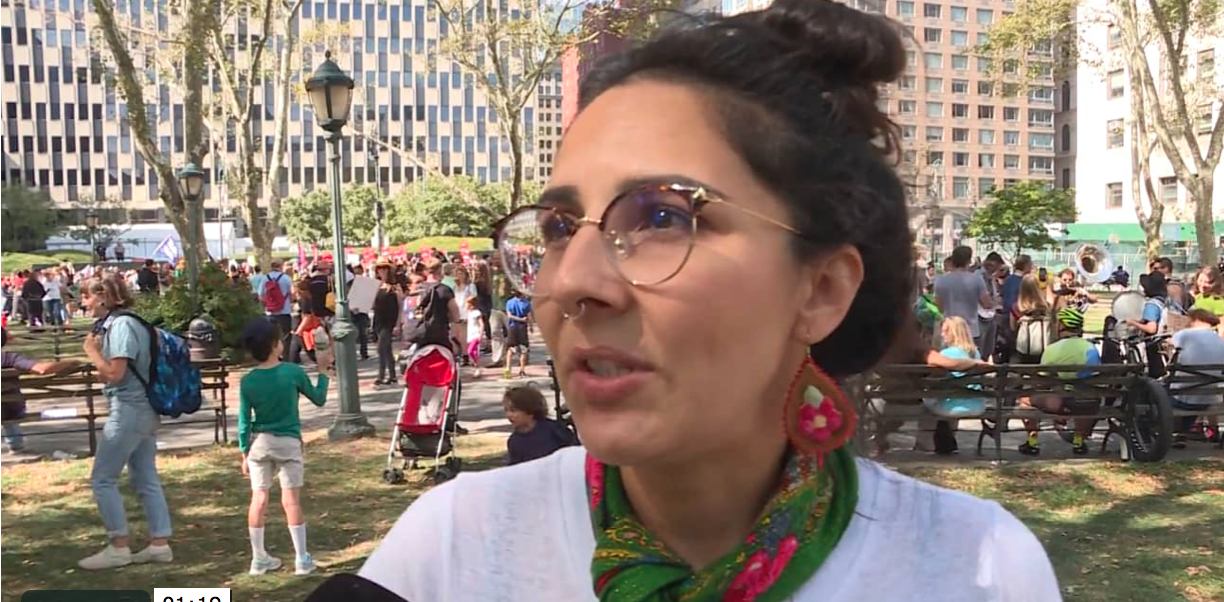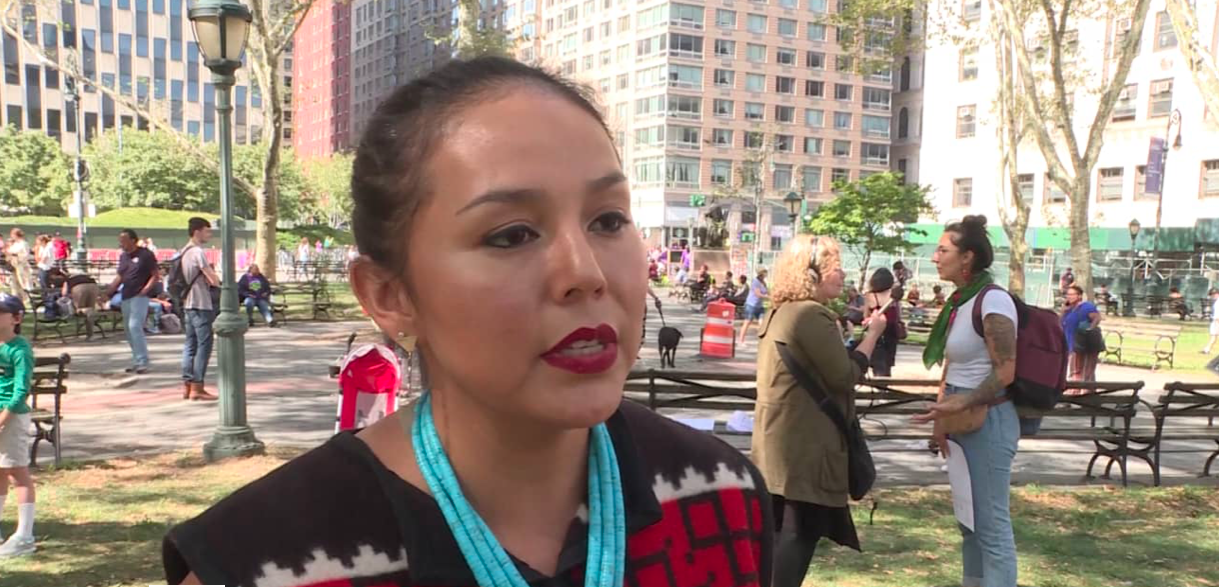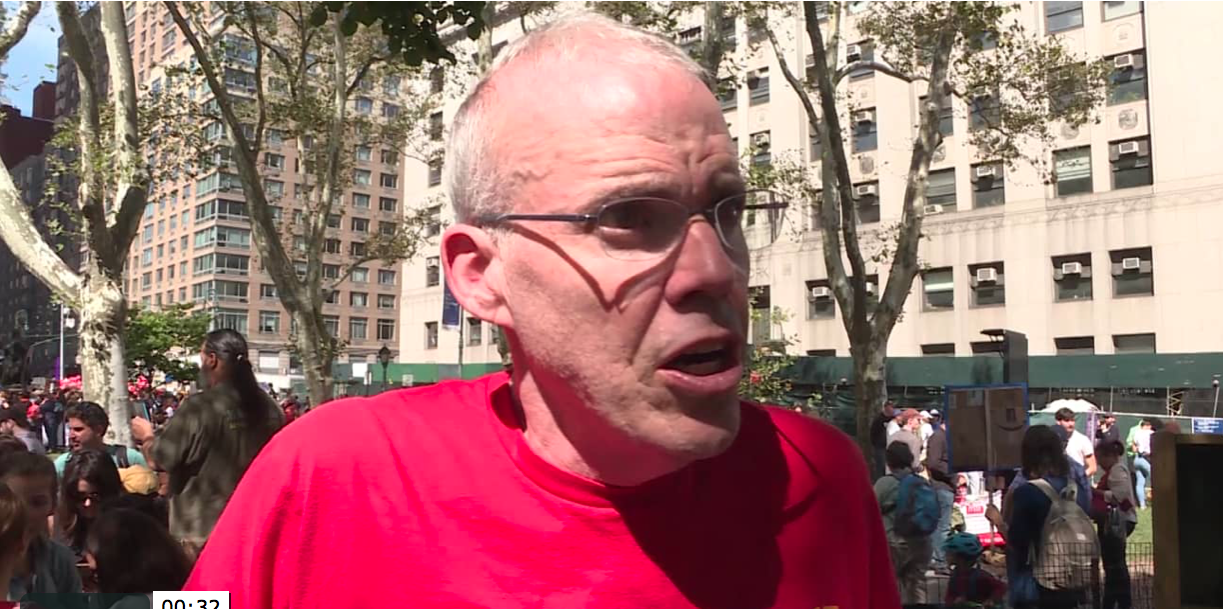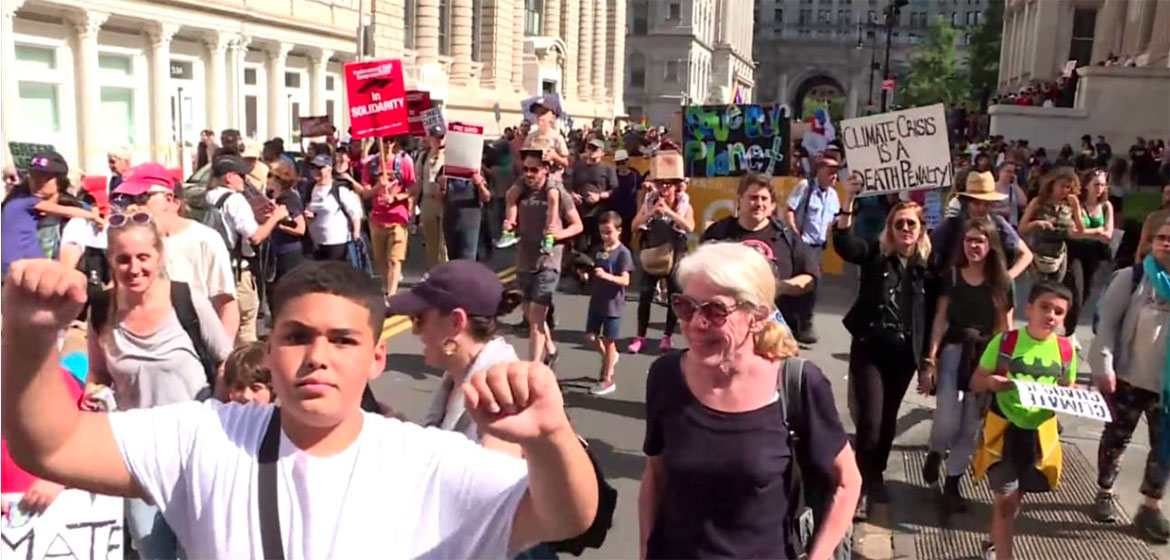By Justin Brake
Millions of people in more than 150 countries around the world rallied in the streets Friday as part of the growing youth-led climate strike movement.
In New York City an estimated 60,000 people marched through Manhattan to demand climate action from U.S. President Donald Trump and other world leaders.
Students and climate activists also held protests in cities across Canada as part of the #FridaysForFuture movement started by 16-year-old Swedish climate activist Greta Thunberg last year.
Thunberg says political leaders are not acting to reduce carbon emissions despite cries from the world’s leading climate scientists, who warn in a 2018 International Panel on Climate Change (IPCC) report that the world must cut global emissions in half by 2030 and achieve net-zero emissions by 2050 to avoid catastrophic climate change.
Indigenous peoples are disproportionately impacted by climate change, contributing little to the crisis while bearing much of its consequences.
Life in the north is rapidly changing for Inuit.
“If the world carries on emitting [greenhouse gases] at current rates, it is projected Inuit will experience an average winter temperature increase of well over 10 degrees Celcius leading to an unimaginably stark climate reality for my children and future grandchildren,” Inuit Tapiriit Kanatami (ITK) President Natan Obed writes in ITK’s National Inuit Climate Strategy.
More frequent and more intense extreme weather is also threatening ecosystems and ways of life for First Nations and Metis communities in Canada.
Earlier this month Assembly of First Nations (AFN) National Chief Perry Bellegarde said addressing the climate emergency is a top priority for First Nations heading into next month’s federal election. In July the AFN passed a resolution declaring a climate emergency.
Indigenous peoples are also on the front lines to address the climate crisis, and must now unite with the fledging student and youth movement sweeping across the globe, says a prominent Diné climate activist.
Janene Yazzie, a sustainable development program coordinator for the International Indian Treaty Council, told APTN News at Friday’s march in New York that the student strikes—which see students in dozens of countries skipping classes on Fridays to send a message to decision-makers—that youth are “changing the sense of urgency around the conversation.”
She said youth are “getting the message across very clearly that [they] aren’t going to sit by anymore.”
Eriel Deranger of Indigenous Climate Action traveled from Alberta to New York to participate in events being held around the United Nations Climate Action Summit this week.
She said Friday’s global climate marches represent “one of the most significant moments that we’ve seen” on climate action.

Video grab
“It’s not just environmentalists, it’s not just climate activists, it’s not just Indigenous people,” she said. “But it’s young people, it’s old people, it’s the labour movement, it’s migrant justice, it’s human rights, LGBTQI — it is all people around the world rising up together to say that something needs to happen, we need to…fundamentally shift what we’ve been doing the last 500 years since colonization started.”
Deranger, who hails from Athabasca Chipweyan First Nation in the oil sands region of Alberta, said thinking around climate change is often restricted by popular but narrow concepts of both the nature of climate change and its potential solutions.
She said decision-makers are operating within those parameters and not developing solutions that meet the scientific targets or the advice of Indigenous elders.
“I think what’s happening with a lot of political leaders, not just the leaders in Canada, is that we are seeing really tiny marginal steps. They’re trying to exaggerate their action on climate. The reality is Canada does not have ambitious climate targets,” she said.
“What we’re seeing is that countries, particularly G7 countries like Canada, are not doing their part in addressing the climate crisis. We have a responsibility as leading nations to not just reduce our emissions but to address the injustices that are coming from the climate crisis and the things that drove us to this, which is extraction, oil and gas development and big agribusinesses.”
Yazzie said Indigenous peoples’ perspectives on the climate crisis must be valued and included in any meaningful action.

Video grab
“Indigenous peoples have been on the forefront of experiencing climate change impacts since colonization — and witnessing for generations what overconsumption and unsustainable development has done to our lands, to our communities,” she said.
“And I think we bring a perspective that is rooted in anti-colonialism and in anti-capitalism that is necessary to inform what meaningful action looks like.
Author and activist Bill McKibben, who founded grassroots climate action group 350.org, told APTN Friday that policy-makers and society need to embrace Indigenous knowledge as much as contemporary science.
“If people paid some attention to the oldest wisdom traditions on this planet, then we have a fighting chance,” he said.
“We’re actually at a powerful moment because the oldest wisdom traditions and the newest ones are kind of meshing. The vision that comes out of the sweat lodge, and the vision that comes out of the super computer and the satellite, are telling us pretty much the same thing. And what they’re telling us is, what the thing that everyone else believes—that we’re just going to keep growing and getting more stuff or whatever—is nonsense.”

Video grab
Between 100,000 and 250,000 people marched in New York Friday, according to estimates from various media outlets.
Many were there to hear Thunberg’s simple message that is resonating across the globe.
“Nowhere have I found anyone in power who dares to tell it like it is,” she said.
“We have not taken to the streets, sacrificing our education for the adults and politicians to take selfies with us and to tell us that they really, really admire what we do. We are doing this to wake the leaders up. We are doing this to get them to act. We deserve a safe future. And we demand a safe future. Is that really too much to ask?”
Thunberg has been attacked for her message, including by right-wing politicians and pundits in Canada.
But she said Friday she is not deterred.
“If you belong to that small group of people who feel threatened by us, then we have some very bad news for you,” she said to cheers.
“Because this is only the beginning.”
Monday’s climate action summit at the U.N. headquarters in New York will be preceded by a youth climate summit Saturday.
APTN will continue its climate change coverage over the weekend and in the lead-up to Canada’s federal election in October.
Thunberg said when world leaders meet Monday, “the eyes of the world will be on them.”
A follow-up global climate strike is planned for Sept. 27, when Thunberg will join students and activists in Montreal to deliver her message in Canada.
Source:
Related to SDG 13: Climate action



